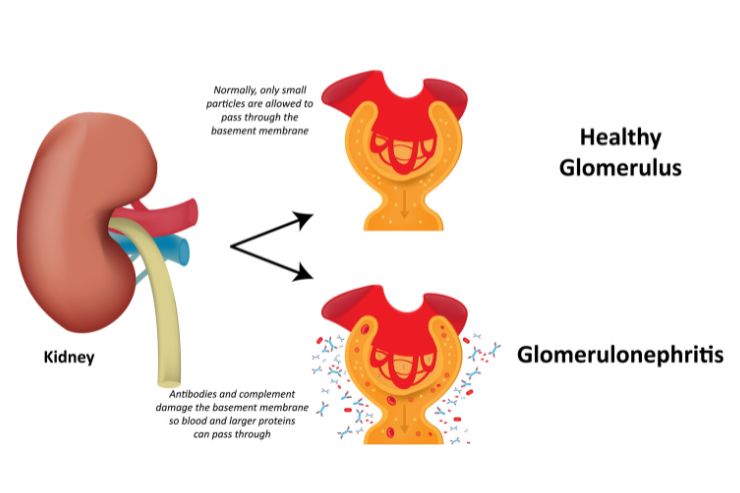Causes:
- Autoimmune Response: The exact cause is not fully understood, but it is believed that a combination of genetic predisposition and environmental triggers may lead to the production of autoantibodies against the basement membrane in the kidneys and lungs.
Symptoms:
- Kidney Involvement: Symptoms include blood in the urine (hematuria), protein in the urine (proteinuria), and reduced kidney function, which can lead to kidney failure if not treated promptly.
- Lung Involvement: Patients may experience coughing up blood (hemoptysis), shortness of breath, and respiratory distress due to lung hemorrhage and inflammation.
Diagnosis:
- Laboratory Tests: Blood tests can detect the presence of autoantibodies against the basement membrane.
- Kidney Biopsy: A biopsy may be performed to examine kidney tissue for characteristic changes.
- Imaging: Imaging studies such as chest X-rays or CT scans may reveal lung abnormalities.
Treatment:
- Immunosuppressive Therapy: High-dose corticosteroids and other immunosuppressive medications are used to suppress the autoimmune response and reduce inflammation.
- Plasmapheresis: This procedure may be employed to remove circulating autoantibodies from the blood.
- Supportive Care: Treatment also includes supportive measures to manage kidney and lung function, such as dialysis for kidney failure or mechanical ventilation for severe lung involvement.
Prognosis:
- With early diagnosis and prompt treatment, the prognosis for Goodpasture syndrome can be favorable. However, delayed diagnosis or inadequate treatment can lead to irreversible kidney damage or respiratory failure.
Goodpasture syndrome requires close monitoring and ongoing management to prevent complications and preserve organ function.

